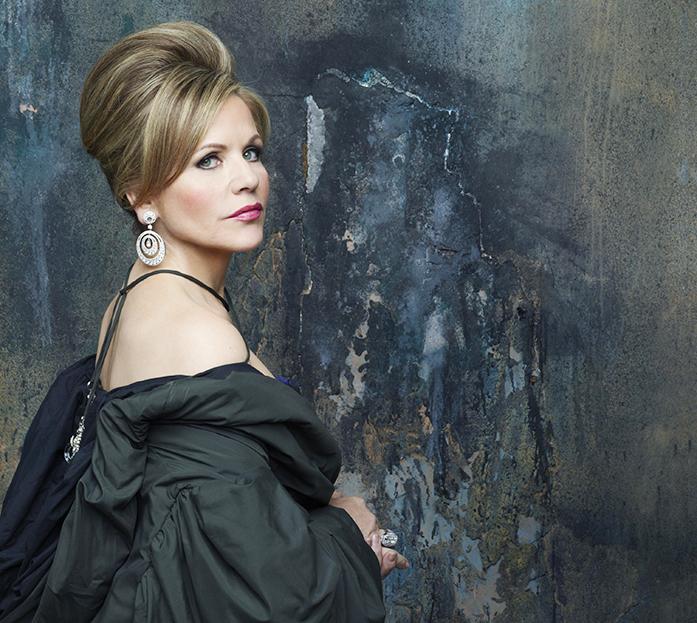Legendary operatic soprano Renée Fleming will perform on Hancher’s stage Saturday night.
By Tessa Solomon
From Carnegie Hall to the Vienna Philharmonic, lyric soprano Renée Fleming has entranced audiences with her distinct timbre and vocal range capable of reaching dazzling altitudes.
The opera singer — whose career has seen her make forays into jazz and musical theater and garner a dizzying haul of accolades — will grace the Hancher Auditorium’s stage at 7:30 p.m. Saturday.
“Since the opening of the new Hancher Auditorium, we have the chance to move back into major recitals,” Hancher Programming Director Jacob Yarrow said. “She is one of the great sopranos of our time, [and] we were really excited to have her here right during our opening period.”
A classically trained vocalist from the Juilliard School, Fleming has grown into an iconic player on the opera and recital stage since her breakthrough win at the 1988 Metropolitan Opera Auditions at age 29. From there, the multilingual vocalist went on to command stages across the globe and assume signature roles such as the title character in Antonin Dvořák’s Rusalka, during a Met Opera revival of the Czech classic.
In one production — Fleming has played the role more times than any other soprano in the Met’s history — she performs Rusalka’s signature aria “Song to the Moon,” gripping the gnarled branches of a nearby tree in anguish, softly lit by a faint spotlight that serves as the stage’s only illumination.
https://www.youtube.com/watch?v=YXHbSBwOXiI
“Shine your light upon him, far away,” Fleming sings in Czech, fingers twisting in the folds of her glittering gown. “Tell him I await him.”
The ability of Fleming’s voice to convey such a wide range of emotion is one of her most often-noted attributes, and is a hallmark of the virtuosic singer.
“The opera singer is expected to make beautiful sounds that are appropriate to the dramatic situation of the opera,” UI Professor of voice Stephen Swanson said. “The palatte for the top singers includes pure exuberant joy, extreme sorrow, loving tenderness, animal passion and any other emotion you might be able to imagine.”
Opera singers are often described as the Olympians of the musical world, set to complete a task that requires monumental vocal dexterity and manipulation.

“They are singing without amplification in a hall that can seat 3,000 people, and they are often accompanied by a very large orchestra,” Swanson said.
Despite Fleming’s relating in her memoir bouts of anxiety before performances, in person, her presence is cool and commanding even when flanked by a prodigious symphony.
In a 1997 interview in the New York Times, Sir Georg Solti — an internationally renowned conductor — said about Fleming, “In my long life, I have met maybe two sopranos with this quality of singing; the other was Renata Tebaldi.”
Even in recording, her tonal mastery and vocal innovation is equally evident. Fleming’s first album, The Beautiful Voice, released in 1998, won her the Grammy Award for Best Classical Vocal Performance at the 1999 ceremony. To date, her Grammy tally sits at four, all coming in the same category.
While a force among the opera elite, she later became a darling of popular audiences after becoming the first classical singer to sing the National anthem during the Super Bowl. To be in the presence of such a powerful voice and legendary woman is a gift not lost on Hancher’s staff.
“I’m always astounded by what the human voice can do,” Yarrow said. “We all use our voices, but to be in the room with someone like Fleming who can control it and create these unbelievable sounds with is amazing. We all have the same thing at our disposal but hearing it refined to this amazing place leaves me breathless.”



